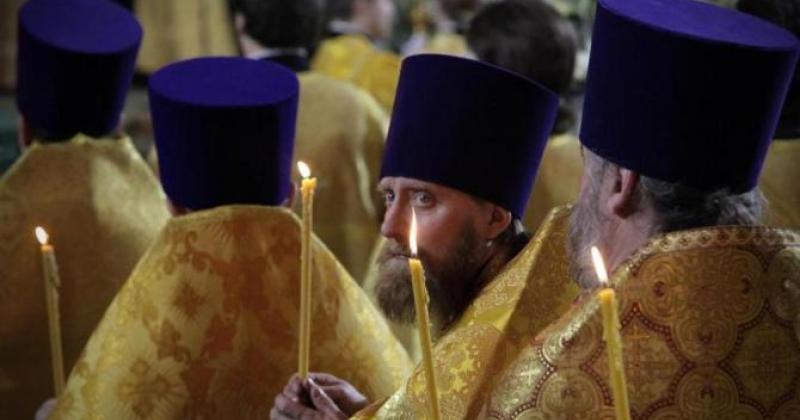Among the texts which will be submitted to the Pan-Orthodox Council of Crete in June there is a statement on “The mission of the Orthodox Church in the Modern World” which condemns weapons of mass destruction, denounces the gap between rich and poor in the world, and calls for a ban on all forms of discrimination.
A document on “the Church and the Modern World” to be submitted to the Pan-Orthodox Council for its approval: the comparison with the Gaudium et Spes - the constitution of Vatican II that bore the same subtitle - comes naturally, scanning through texts that the Synaxis of the Primates (the assembly of patriarchs from the Orthodox Churches, who met in Chambésy, Switzerland in late January) has decided to make public in view of the historic meeting of the bishops of all the Orthodox Churches scheduled for June 16-27 in Crete.
The statement issued by the primates lists the titles of six documents that will be submitted to be examined by the Council; but it is primarily “The Mission of the Orthodox Church in the Modern World,” which is first to be cited, noting that it was approved unanimously (unlike - for example - the one on “Marriage and its Impediments,” not voted on by some patriarchs). The social document offers an interesting synthesis of the thought of the Orthodox Churches on issues such as peace, justice, freedom, and the fight against all forms of discrimination.
The text consists of an introduction followed by two thematic sections. “The Church of Christ lives in the world, but is not of this world” are the first words that expressly refer to chapter 17 of John’s Gospel. “The Church,” it is specified a little later, “cannot remain indifferent to the problems of man in each historical epoch; on the contrary, it shares his concern and daily challenges, taking on the burden, like the Lord, of the pain and the wounds caused by the evil that is at work in the world; and, like the Good Samaritan, with a word of “patience and consolation” (Rom. 15:4, Heb. 13:22) and with active charity, pours oil and wine over these wounds (Luke 10:34 ).”
The fundamental point of reference is the affirmation of the “dignity of every person,” the unconditional respect thereof being founded on Scripture and the teaching of the Fathers. But this same dignity is threatened wherever the link between “freedom and responsibility” is diminished. This, say the Orthodox Churches, is the root “of the imperfections and failings that dominate the modern world” (and the document indicates a long list ranging from violence to neglect of moral customs, from disasters to racism). Hence the task for the Orthodox Church is to “reveal the truth of freedom in Christ” because “freedom without responsibility and love may lead to the loss of liberty itself.”
With this foundation the document then becomes more specific about some issues, devoting two whole sections - the third and fourth - to the theme of peace in justice. “The Church of Christ,” we read, “condemns war as such, judging it as a fruit of evil and sin that exists in the world. Every war threatens to destroy both life and creation as willed by God. And this is particularly the case for wars with weapons of mass destruction, which have terrible consequences,” the effect of which extends “even to future generations.” Mentioned specifically are “nuclear, chemical and biological” weapons as well as the condemnation of any war “inspired by nationalist motivations and leading to ethnic cleansing, the changing of the borders between the states and the occupation of territories.” Even “in situations where war becomes inevitable” - the document continues - the Church has the duty “to put into action every effort for the quick restoration of peace.”
The fifth section is devoted instead to the attitude of the Church regarding discrimination: “Regardless of skin color, religion, ethnicity, gender, nationality or language,” it reads, “every person is created in the image and likeness of God and has equal status as part of the human community.” The last section, finally, considers the theme of the “witness of charity in the ministry.” “In fulfilling its mission of salvation for the world,” says the text which will be submitted to the Council of Crete, “the Orthodox Church takes active care of all those who need help, the hungry, the poor, the sick, the invalids, the elderly, the persecuted, the prisoners, the homeless, the victims of catastrophes and wars, and the victims of new forms of slavery.”
There is strong consonance between this last part and many ideas contained in the encyclical of Pope Francesco, Laudato Sì: also criticized is the growing gap between the rich and the poor in the world, financial speculation, the concentration of wealth amongst a few, and the persistence of hunger. Concern is expressed for “the imposition of a lifestyle of consumerism, and the eradication of Christian moral values.” Faced with the “ecological crisis,” the Church is invited to do “whatever its spiritual strength enables it to do to promote the protection of creation from the consequences of human greed.” Finally - on the topic of scientific research, especially in the sensitive area of biotechnology - the document of the Orthodox Churches urges, as a criterion, the recognition of “the absolute right of a person to be respected at every stage of their life.”
Meanwhile, the Moscow Patriarchate does not rule out a second and even a third meeting between Pope Francis and the head of the Russian Orthodox Church Kirill after their meeting on February 12 in Cuba. “His Holiness,” stated Metropolitan Hilarion, head of the department for external relations of the Moscow patriarchate, to the TASS, “said the first meeting could be followed by a second and a third, but at the moment we have no specific agreements.”
